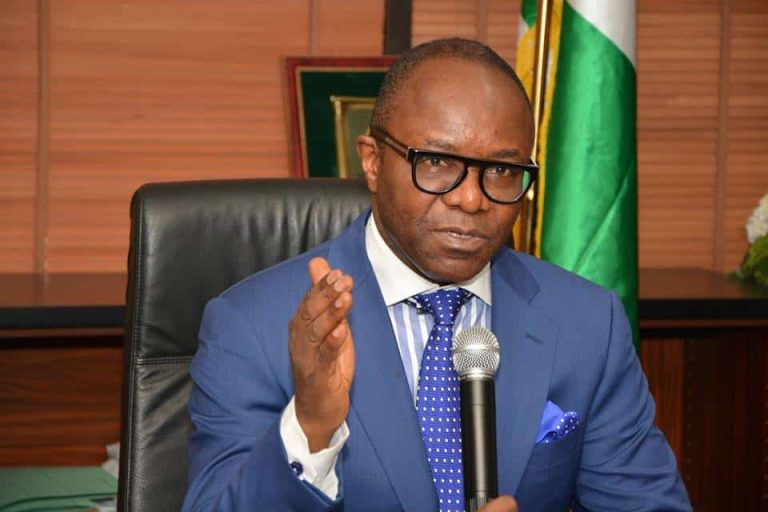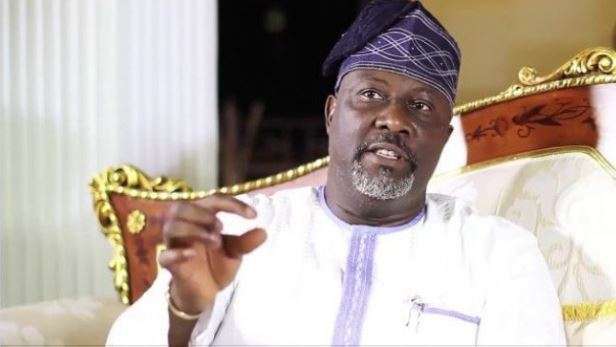Former Minister of State for Petroleum Resources, Ibe Kachikwu, has opened up about the intense challenges he faced in managing Nigeria’s fuel supply crisis between 2016 and 2019, including direct threats from then-President Muhammadu Buhari. Speaking during a virtual business mentorship lecture series organized by the Nigerian Content Development and Monitoring Board on Monday, Kachikwu revealed that Buhari had warned him he would be dismissed if his attempt to remove petrol subsidies backfired.
Kachikwu explained that one of his greatest challenges as Group Managing Director (GMD) of the Nigerian National Petroleum Corporation (NNPC) and later as Minister was the recurring long queues at fuel stations across the country. He described the situation as “traumatic,” noting that each day fuel scarcity brought the nation to a standstill. According to him, he often visited filling stations personally to help resolve distribution bottlenecks and reduce traffic congestion caused by desperate motorists in search of petrol.
He disclosed that after conducting investigations, he discovered that much of the subsidized petrol imported into Nigeria was being smuggled across the borders. The price disparity created by the subsidy encouraged smuggling, making it nearly impossible to meet local demand. Kachikwu noted that despite working closely with the Customs Service, the Ministry of Petroleum, and other agencies, smuggling persisted because he lacked the political and security resources needed to police Nigeria’s porous borders effectively.
In response to these findings, Kachikwu repeatedly approached Buhari with proposals to review pump prices. However, he said the late president strongly resisted any upward adjustment due to his populist outlook and commitment to keeping fuel prices low for Nigerians. According to Kachikwu, Buhari eventually relented, giving him permission to implement the change but not without a stern warning. “Eventually, he said, ‘Okay, you know what? I’ll leave you to take the risk. If you take the risk and it works, fine. If it doesn’t work, I fire you,’” Kachikwu recounted.
Following this directive, Kachikwu introduced a policy he described as “price modulation.” This allowed petrol prices to reflect changes in the international oil market while gradually removing the subsidy burden on the government. He explained that the slight adjustment immediately changed the situation. Within 48 hours of implementing the new pricing structure, fuel queues disappeared across the country, and the subsidy that had strained government finances was effectively eliminated.
“That singular price adjustment removed the subsidy. There was no more subsidy. And within 48 hours, magically, every queue in the country stopped,” Kachikwu said. He added that this breakthrough brought him relief as he was finally able to rest without constant anxiety over fuel shortages. He also highlighted that the government benefitted financially from the removal of the subsidy since more revenue was available once the subsidy burden was lifted.
Kachikwu’s revelation sheds new light on the behind-the-scenes struggles of Nigeria’s fuel subsidy regime, which has remained one of the most contentious policy issues in the country. For decades, successive governments have struggled with balancing public expectations for cheap fuel against the massive financial losses and corruption associated with subsidy payments. His account also underscores the political risks that often accompany any attempt to alter fuel prices in Nigeria, where subsidy removal has historically triggered public backlash.
While his policy brought temporary relief during his tenure, Nigeria has since returned to subsidy-related challenges and periodic fuel scarcity, underscoring the complexity of managing the sector. Kachikwu’s remarks provide insight into the tensions that existed within the Buhari administration over subsidy reform and highlight the limited room ministers had in pushing policies that clashed with the president’s political instincts.





